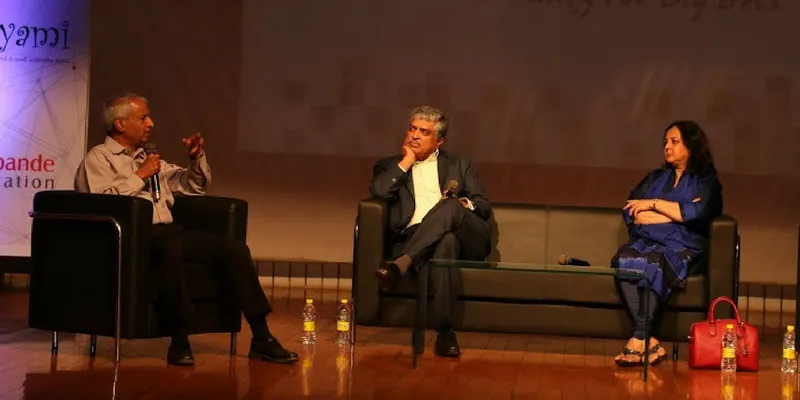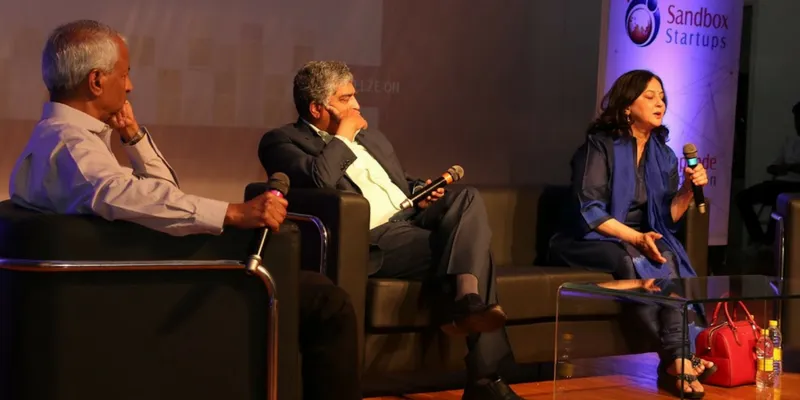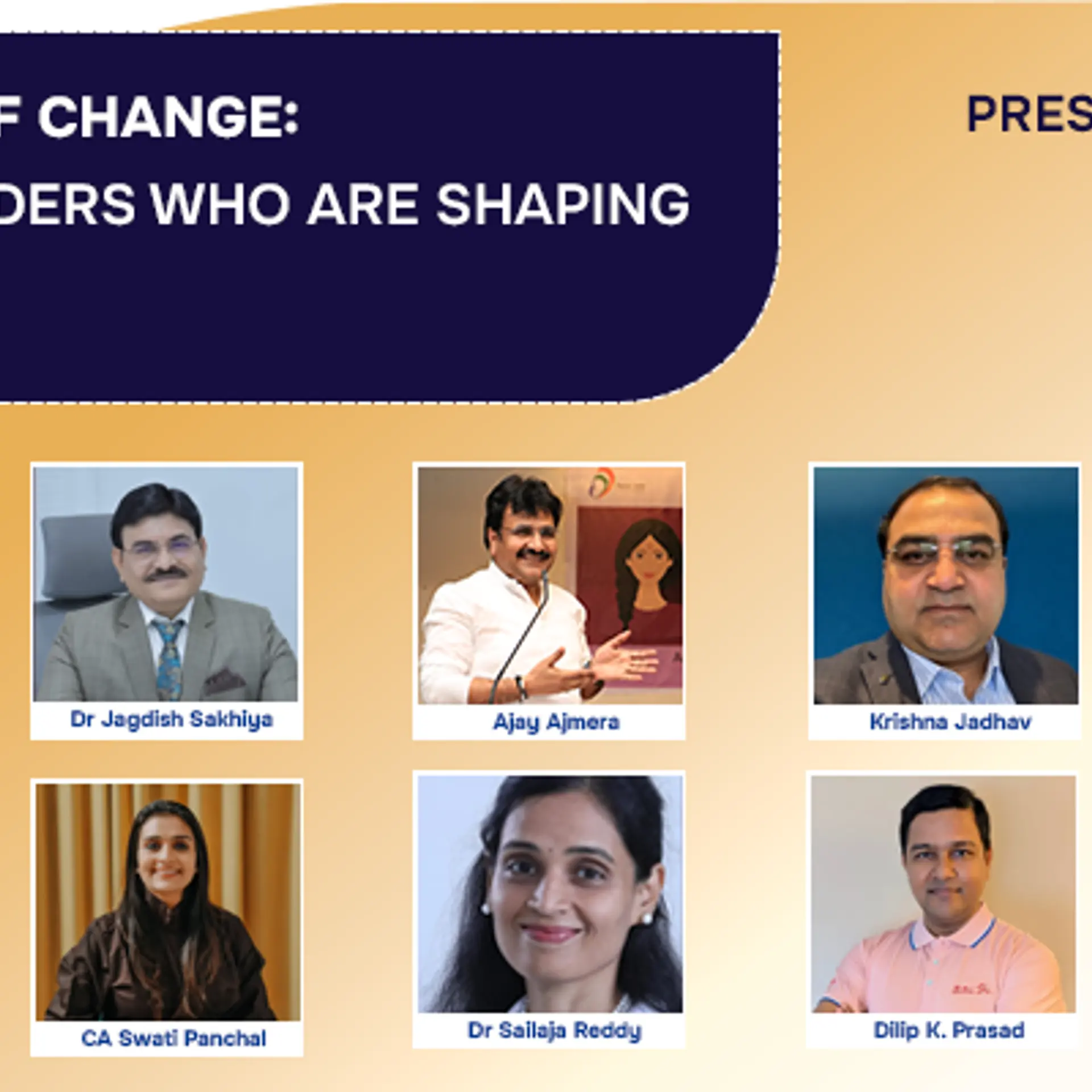The only way to bring Nandan on board, is to talk about millions: Rohini Nilekani
This will help bring alive lessons, by complementing textbooks with video tutorials and customised content on smartphones.
Schools in Tamil Nadu, Andhra Pradesh, Rajasthan and Maharashtra will soon have QR codes in the textbooks, said Nandan Nilekani, Chairman of EkStep Foundation. In a panel discussion at the 11th edition of Development Dialogue, an annual summit organied by the Deshpande Foundation, power couple Nandan and Rohini Nilekani introduced the audience to a virtual tour of the books.

Nandan, along with his wife, Rohini, Founder of Arghyam Foundation, co-founded Ekstep Foundation, a digital platform for education that aims to address learning challenges in the primary education space. In the panel discussion on the topic ‘Realising a Billion Aspirations’, the duo spoke about how digital platforms will give telemetry of the content in education. Introduction of QR codes in the textbooks will enable students to view video tutorials and customised content from smartphones, they added.
Nandan, who has had extensive experience working with the government, said,
One of the things that I have learnt is that government is a big amplifier. If intervention happens at an early stage, impact is going to be bigger.
Vouching for co-creation platforms that are open source to amplify the cause, he pointed out that a problem like education cannot be addressed with one-solution-fits-all, approach.
Speaking about how the idea of QR codes in education emerged, Nandan recalled a chance encounter with Anand Agarwal, CEO and director, Sterlite, and Sanjay Sarma, Vice President for Open Learning at Massachusetts Institute of Technology, at a graduation event organised by MIT and Harvard.
Rohini, who has worked in primary education in the setting up of Pratham and Akshara educational platforms, felt that there is very little for the little kids back home when compared to the ones already graduating with degree in AI, he said.
This has manifested in a new initiative which is slated to launch in the next six months, across the four states. Rohini has previously worked with the Karnataka government on Pratham Network, a public-private partnership (Making the books more accessible in villages and government schools) that was started in 1994.
The fact that many children in this country are not learning the basics is a national tragedy. What we wanted to do is combine Nandan’s ability to think large scale and my experience from the civil society sector, which will place passion, commitment and integrity to scale people’s capacity, added Rohini.
Also read: ‘In India, consumption means development,’ says Kishore Biyani, Founder, Future Group
When asked by Desh Deshpande, the founder of Deshpande Foundation on how Rohini led Nandan into this project, she quipped,
When I told Nandan that through this initiative, they would be solving problems of 200 million young children, he was suddenly interested. That was the only way to get him involved. A minimum number of a million, I thought could get him excited.

Last year, the Nilekanis joined hands with the Bill and Melinda Gates and Rockefeller Foundation for a new venture – Co-Impact. An initiative to create a global model for collaborative philanthropy and systems change at scale, Co-Impact will work with Infosys and EkStep Foundation as their technical partner by supporting a number of Co-Impact programmes ‘with their open knowledge and societal platform assets as well as capacity building’. The philanthropic venture will invest $500 million in three critical areas – health, education and economic opportunity. In 2010, the duo had joined 'Giving Pledge’, an initiative created by Bill and Melinda Gates and Warren Buffet to encourage billionaires to dedicate the majority of their wealth for philanthropy.
Through the Ekstep foundation, the Nilekanis plan to build infrastructure for societal platforms that address issues like education for the new-age India.







